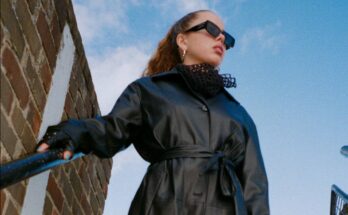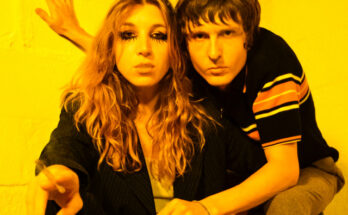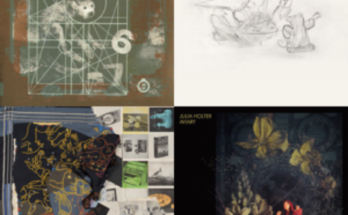Last night I had a dream … that the world would turn around … All our hopes would come to be … and the people gathered ’round … They all brought what they could bring … and nobody went without … and then the song would sing: The revolution starts now – in your own backyard … in your own hometown.
Then entered a deep voice: “Welcome to Radio Free Urbana.”
So went the first sounds to come from Champaign-Urbana’s new community radio station, 104.5 FM WRFU. Actually, to be accurate, just before Steve Earle sang about the revolution, a jingle was heard from a small, red music box. It was L’Internationale – an anthem often associated with Communist, Socialist and anarchist parties. The station is officially licensed to the Socialist Forum.
“It’s a non-sectarian, democratic-socialist group,” said Mike Lehman, the station’s founder and manager. “But the radio station is not the party organ of the forum. We just want more people in the community to have a voice.”
An often-expressed sentiment at WRFU, located at 202 S. Broadway Ave. in Urbana, is that low power and community radio stations such as itself are like David to corporate radio’s Goliath, but instead of David trying to slay Goliath, he’s merely trying to exist in the same realm – the airwaves.
Prometheus Radio Project, a non-profit organization that helps the development of community radio stations, collaborated with WRFU in setting up the station, and part of their mission statement sums up the David and Goliath mentality.
“Our concern is that those who have fought so hard to make this legalized service possible will be squeezed out by other interests with deeper pockets,” the group’s Web site, http://www.prometheus.org states.
The station went live at 5 p.m., Nov. 11, 2005, on 104.5 FM, thanks in large part to a “barn-raising” event staged by the Prometheus Radio Group. In one long weekend leading up to November 11, approximately 200 people volunteered to help turn the Independent Media Center’s Urbana location into a fully functioning radio station. Volunteers from places as far as Olympia, Washington and Cameroon, Africa attended the event.
“We literally built the entire station in three days,” said John Anderson, a volunteer at the station.
The space at 202 S. Broadway Ave. is a recent purchase by the Independent Media Center (IMC) of Urbana. It takes up a sizable portion of the same building as the downtown Urbana post office. And while the IMC simply needed more space than its former, cramped, basement headquarters could offer, the purchase was made with the construction of the radio station in mind.
WRFU joins a very small number of community radio stations in the state. One of which, WEFT, is located in downtown Champaign.
“A lot of people think it’s direct competition,” Stephane Alnet, a volunteer at WRFU said. “It’s not. Having this doubles the amount of community radio in the area, which we think is a good thing.”
WRFU currently runs at a frequency of 100 watts, which barely covers the CU area, making it truly a low power station. Alnet said its relatively small size allows it to be more experimental.
“Even if someone’s never done radio before,” he said, “it’s perfectly okay.”
The IMC is politically unaffiliated but has similar interests to the Socialist Forum in offering media opportunities to the community. The Socialist Forum’s license for WRFU is currently being handed over to the IMC by way of a slow-going legal process.
“That means the Socialist Forum is just another working group for the IMC,” said Lehman. “And it means [WRFU] is not really organized. People just jump in and participate.”
The station is attempting to run a consensus-based model, where everyone has an equal say, no matter how long one has been there or how much experience she has. There is no official hierarchy. Lehman pointed out Lynsee Melchi as a leader who knows the day-to-day workings of the station more than anyone else, but still declines to claim a job title.
“There’s not really anyone in charge, so I guess I don’t have a title,” Melchi said. “I act as a spokesperson for the radio station. So that might be the closest thing to one.”
In this free-form system, Melchi points out that there are some “perceived barriers” by newcomers. Lack of knowledge or experience is no excuse to not contribute, though, she said.
“When I first started, I was the only woman,” Melchi said. “It was me and five other guys, sitting around and talking about radio equipment, and I don’t know anything about radio equipment.”
Her story serves as Radio Free Urbana’s ideal volunteering – just jumping in and getting involved.
“And then one day,” she said, “they said we need to raise some money, and we need someone to tell people about us. And I thought – I can do that. I didn’t actually know what I was doing. I just sort of made it up as I went along, but I didn’t do so bad.”
She says that she spends much of her time at the station when not at her full-time job. And that brings up another of WRFU’s difficulties: being run by part-time volunteers, things take longer to get done.
“People ask why something hasn’t been done,” Lehman said, “and it’s like, well, no one has volunteered to do it yet. There’s no paid staff, so sometimes it can be a little bit disorganized.”
The station is currently looking to fill some large gaps in its schedule, and in a sense, 104.5 FM is a blank slate to be filled in any way that the community sees fit. Despite L’Internationale being played during the station’s kick-off and the Socialist Forum being integral in its creation, the station is theoretically politically neutral, so ideology is certainly no grounds for discrimination at WRFU. Some members of the station would prefer that it is not considered strictly liberal.
“It’s not so much left wing as it is just making space available for anybody,” Evans said.
The station is willing to take on practically any show – just as long as the person who proposes it has been trained to work the equipment. And depending on who you ask, what the station’s programming should look like differs.
“Women are largely underrepresented as on air personalities on WRFU, and we’re looking to change this,” said Danielle Chynoweth, a volunteer at the station and a member of the Urbana City Council.
According to Alnet, one of WRFU’s main missions is to broadcast in multiple languages. Having been raised in the Northeast of France, Alnet enjoys playing and listening to his native language during his show, “The French Hour.”
“WRFU is largely coordinated by those in the alternative music scenes, so musically we are quite eclectic,” said Chynoweth. “But as for talk, we could do better. Hopefully more people will come forward to discuss the critical issues in our community, country and the world.”



